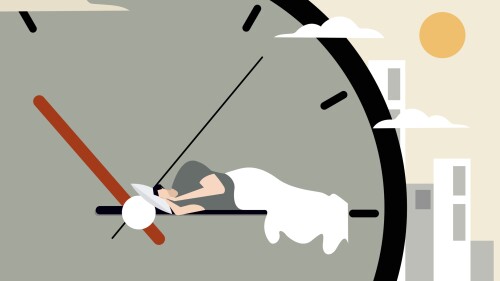I read a lot of books. Most are good, some are great, and few are life-changing. by Dr. Matthew Walker is a life-changer.
Permission to sleep
I used to say that the book scared me into prioritizing my sleep. With time, I realize that it’s not that I am scared into sleeping better but rather it gave me permission to prioritize my sleep. While napping or going to bed early once seemed like a luxury, I now consider it more important than my workout or what I eat.
EMS needs to start prioritizing sleep, not just as one of the pillars of health, wellness and safety, but as the foundation upon which everything else is built.
Impacts of sleep deprivation
I have said it and I‚Äôve heard it time and time again in firehouses and EMS stations across the country: ‚ÄúI‚Äôll sleep when I‚Äôm dead.‚ÄĚ Well, fun fact, research shows that not getting enough sleep will actually lead to shorter lifespan than if you are well-slept! So, while you will sleep when you‚Äôre dead, and that eternal sleep will come sooner if you are not getting seven or more hours of sleep a night.
Dr. Walker‚Äôs book details all the health impacts of not getting enough sleep. Sleeping less than 7 hours per night increases risks for nearly every disease ‚Äď cancer, cardiovascular disease, mental health issues, fertility issues, obesity, hypertension, diabetes and suicidal ideation. These are all health challenges firefighters, EMTs and paramedics struggle with, making it even more important for first responders to prioritize getting enough sleep.
Answering key sleep questions
For a scientist, Walker‚Äôs actually pretty funny ‚Äď or as funny as a scientist can be. He walks you through the science of sleep, why it is so important, what happens when you sleep, and what happens when you don‚Äôt. The findings he reports are amazing and humbling all at the same time. He challenges a lot of assumptions and long-held beliefs with evidence. For instance, think you are just someone who operates at optimum capacity with less than 4 hours sleep a night? It could be. There are people who are the ‚Äúsleepless elite‚ÄĚ who truly won‚Äôt or can‚Äôt sleep longer than that, and it has been tied to a specific gene. However, your chances of truly having that gene are about the same as your chances of being hit by lightning.
Wondering if safety naps should be a thing or if they are just an excuse for people to slack off at work? Walker has an answer for that too. (You’ll have to read the book to find out.)
Not into reading? Don’t worry, he also has and on sleep.
Whatever way you prefer to get your information, DO THAT. Listen to his message, and figure out what you can do to prioritize your own sleep.
- Unlock Functional Fitness
- Transforming Post-Traumatic Injury Into Growth
- How to Build Wealth and Crush Debt
- Building Effective Wellness Programs
- The Power of Connection: Family, Friends Faith
This article, originally published in 2023, has been updated to include additional resources.


















